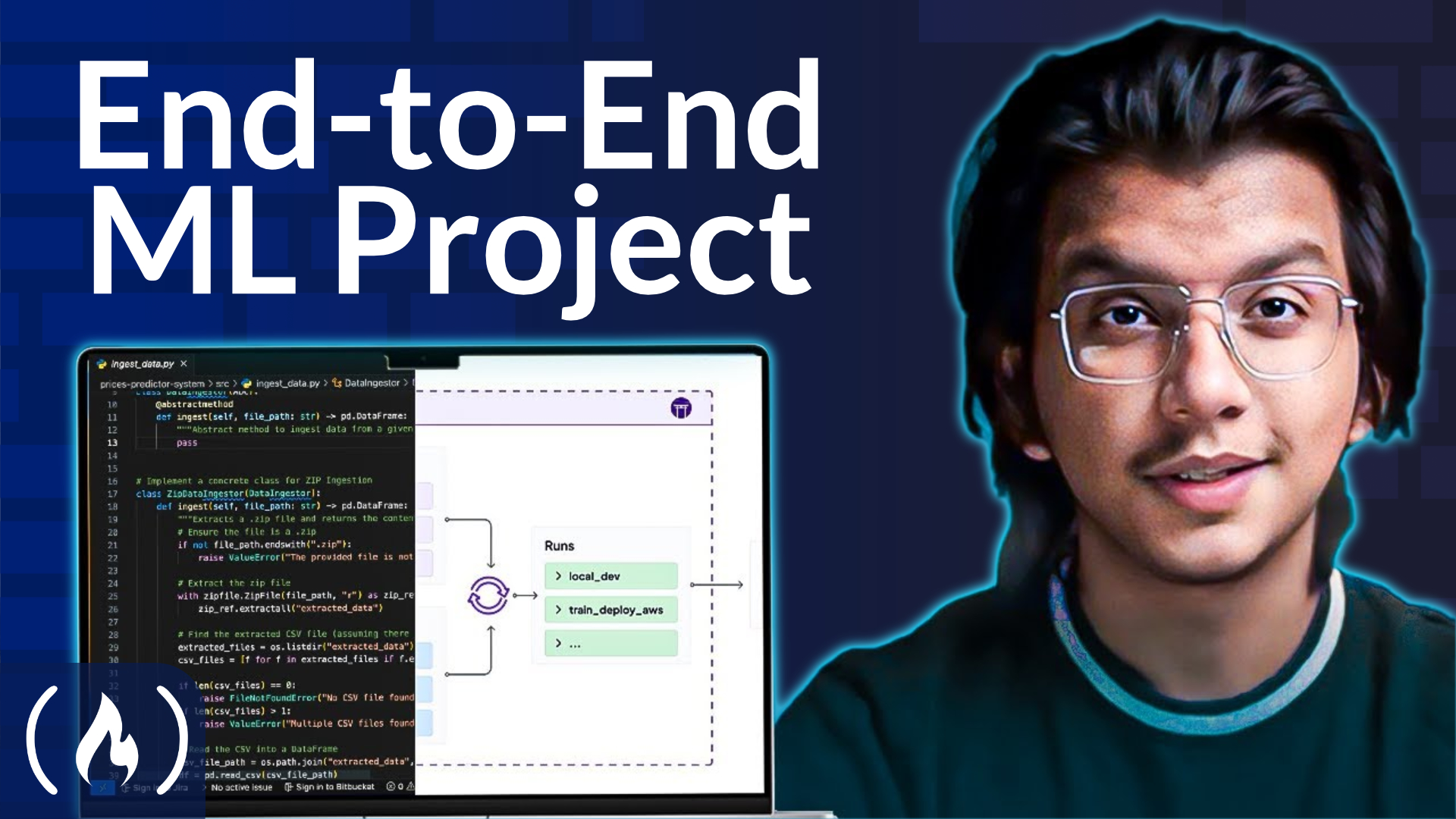
If you want to improve your skills in machine learning and MLOps, we have a great course for you. We just posted a comprehensive End-to-End Machine Learning course on the freeCodeCamp.org YouTube channel. It is designed to equip you with both foundational knowledge and advanced skills in machine learning operations. Whether you're a beginner or looking to enhance your expertise, this course offers valuable insights and practical experience. Ayush Singh developed this course. He is an experienced machine learning engineer and popular course creator.
What You Will Learn
This course is structured to guide you through the entire machine learning pipeline, from data exploration to deployment. Here’s a breakdown of the key concepts and skills you will acquire:
1. Exploratory Data Analysis (EDA)
Understanding your data is important for any machine learning project. This course will teach you how to conduct thorough Exploratory Data Analysis (EDA) to uncover patterns, spot anomalies, and craft compelling data narratives. You'll learn techniques to visualize and summarize data, providing a solid foundation for building effective models.
2. Feature Engineering
Feature engineering is the art of transforming raw data into meaningful inputs for machine learning algorithms. You'll gain a deep understanding of why and how to engineer features, enhancing the predictive power of your models. This section covers techniques for creating new features, selecting the most relevant ones, and preparing data for analysis.
3. Model Implementation and Validation
Building a model is just the beginning. This course emphasizes the importance of rigorous testing and validation to ensure your model performs well on unseen data. You'll learn how to implement a single model, evaluate its performance, and refine it through iterative testing. This process is crucial for developing reliable and accurate machine learning solutions.
4. Writing Scalable and Readable Code
Good code is not only functional but also scalable, defensive, and readable. You'll explore design patterns and best practices for writing clean and efficient code. This section will help you develop skills to create robust machine learning applications that are easy to maintain and extend.
5. MLOps Integration
Integrating machine learning models into production environments is a critical skill. The course introduces MLOps, a set of practices that combine machine learning, DevOps, and data engineering. You'll learn to use tools like ZenML and MLflow for experiment tracking and deployment, ensuring your models are not only effective but also scalable and maintainable in real-world applications.
Why Take This Course?
The End-to-End Machine Learning course on freeCodeCamp.org is designed to provide a holistic understanding of the machine learning lifecycle. By the end of the course, you will have the skills to handle complex data projects, implement robust models, and deploy them effectively using MLOps practices.
Watch the full course on the freeCodeCamp.org YouTube channel (3-hour watch).